Intel Core i9-11900K Linux Benchmarks
For this exercise, we are using our legacy Linux-Bench scripts which help us see cross-platform “least common denominator” results we have been using for years as well as several results from our updated Linux-Bench2 scripts. At this point, our benchmarking sessions take days to run and we are generating well over a thousand data points. We are also running workloads for software companies that want to see how their software works on the latest hardware. As a result, this is a small sample of the data we are collecting and can share publicly. Our position is always that we are happy to provide some free data but we also have services to let companies run their own workloads in our lab, such as with our DemoEval service. What we do provide is an extremely controlled environment where we know every step is exactly the same and each run is done in a real-world data center, not a test bench.
We are going to show off a few results, and highlight a number of interesting data points in this article.
Python Linux 4.4.2 Kernel Compile Benchmark
This is one of the most requested benchmarks for STH over the past few years. The task was simple, we have a standard configuration file, the Linux 4.4.2 kernel from kernel.org, and make the standard auto-generated configuration utilizing every thread in the system. We are expressing results in terms of compiles per hour to make the results easier to read:
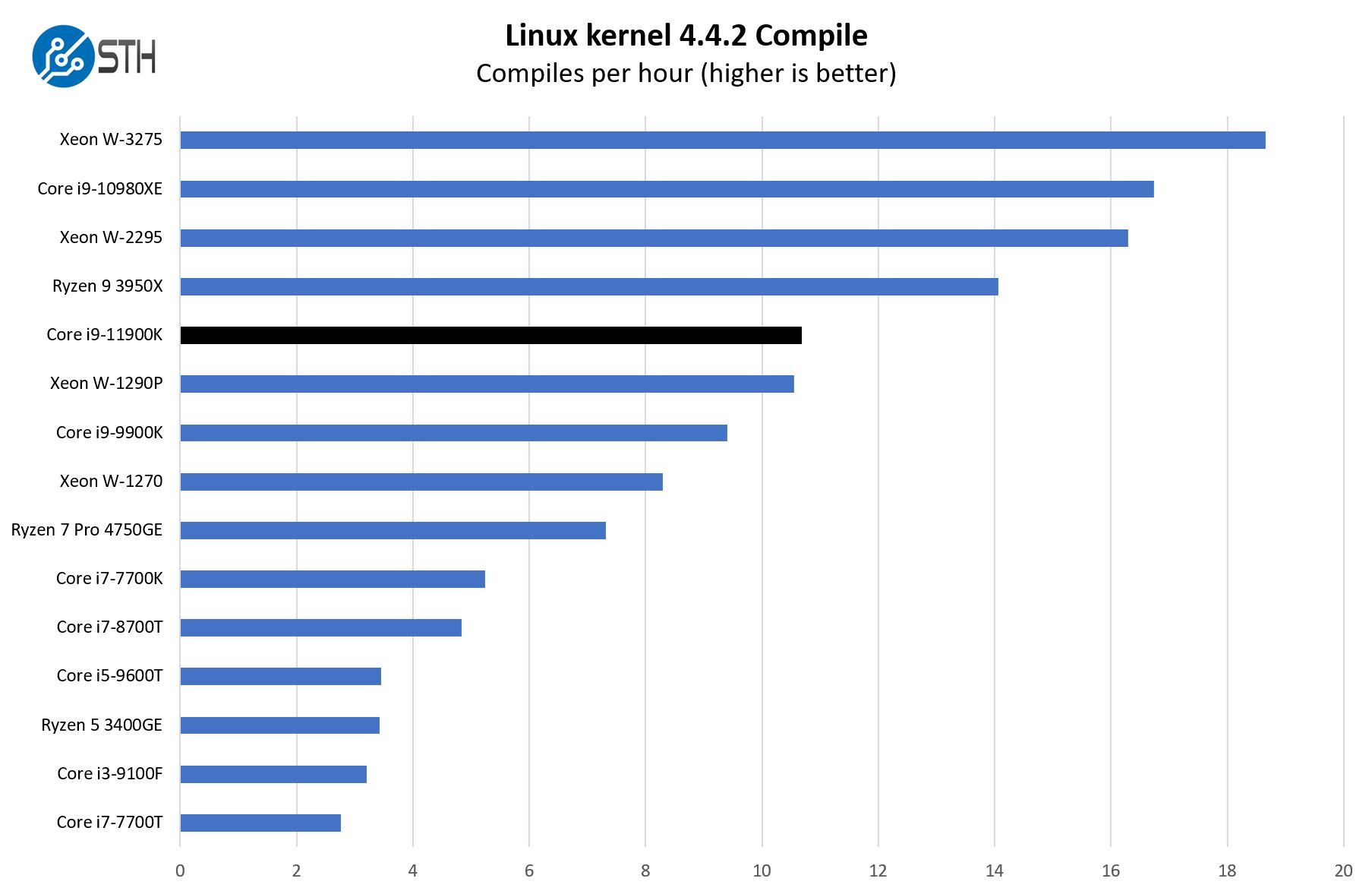
We have a pretty wide range of comparison points, but our Ryzen 5000 series parts are in an ordering holding pattern. Still, we wanted to give a few views of performance without doing 20 pages of charts that our readers will not look at. Instead, we are going to take a look at a range of CPU options.
This result is interesting because we see the Core i9-11900K outpace its previous-gen 10-core competitor. The Intel Xeon W-1290P is effectively the ECC-enabled workstation re-brand of the Core i9-10900K.
c-ray 1.1 Performance
We have been using c-ray for our performance testing for years now. It is a ray tracing benchmark that is extremely popular to show differences in processors under multi-threaded workloads. We are going to use our 8K results which work well at this end of the performance spectrum.
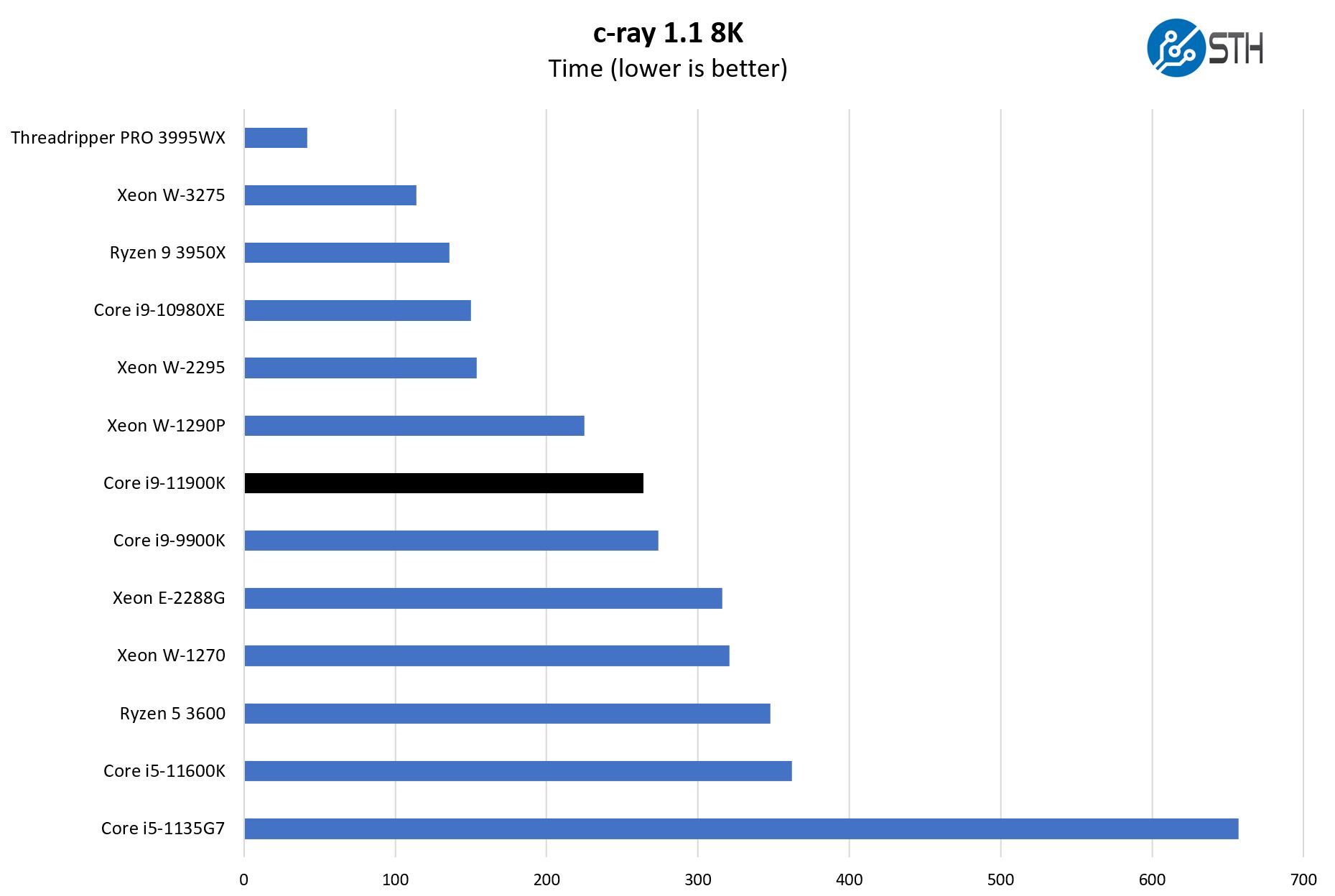
Here the situation flips with the Core i9-11900K. While it outpaces the Core i9-9900K that also is an 8 core 16 thread part, having two fewer cores means that it is not as fast as the previous generation 10-core part.
7-zip Compression Performance
7-zip is a widely used compression/ decompression program that works cross-platform. We started using the program during our early days with Windows testing. It is now part of Linux-Bench.
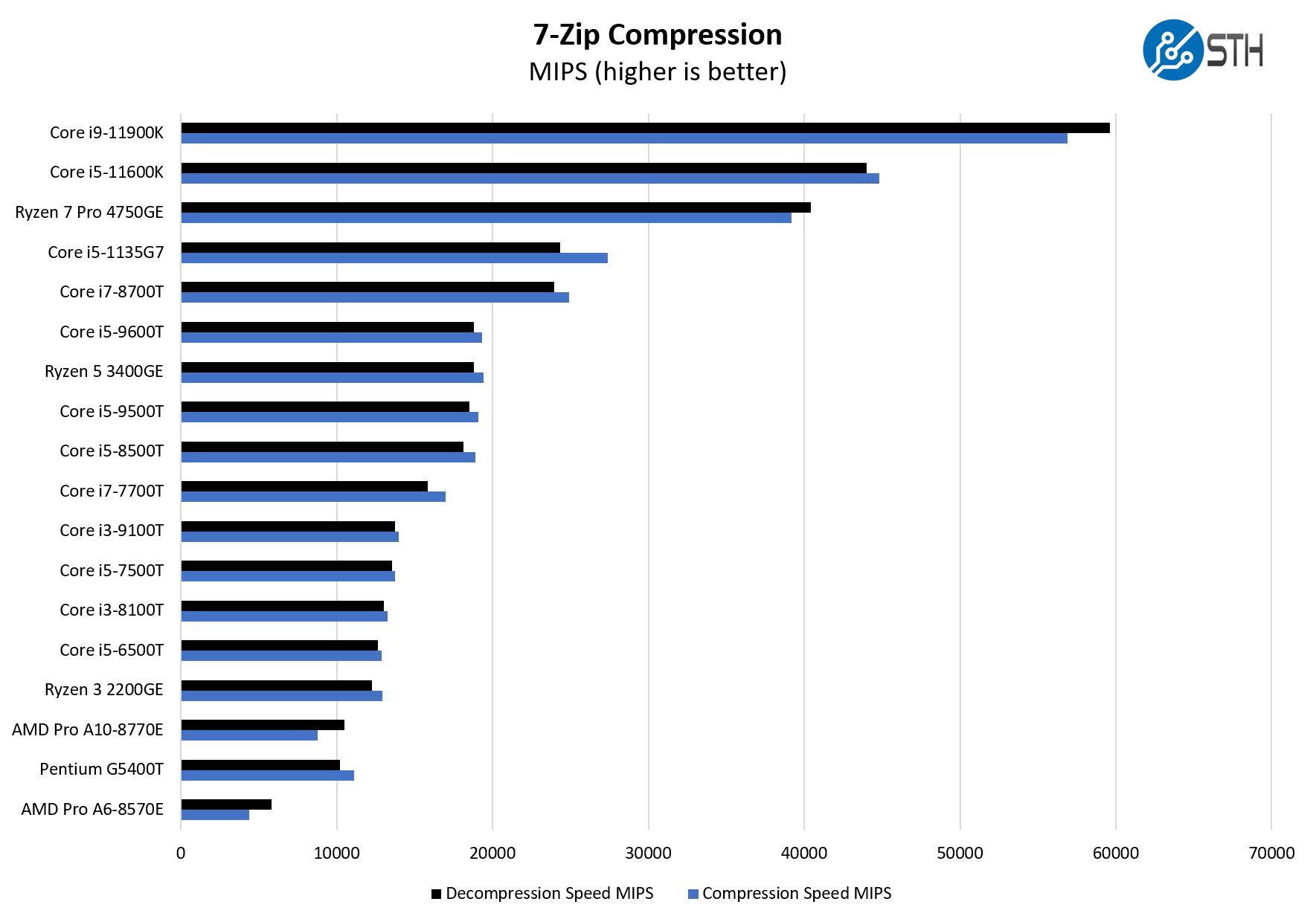
Here we wanted to bring in a lot of data from the Project TinyMiniMicro segment. One can see that going from 35W TDP CPUs to 125W TDP means that we get a lot more performance. This is what we would expect, but it is also showing that the difference is not a 50% improvement, but is 2x or more depending on the generation.
OpenSSL Performance
OpenSSL is widely used to secure communications between servers. This is an important protocol in many server stacks. We first look at our sign tests:
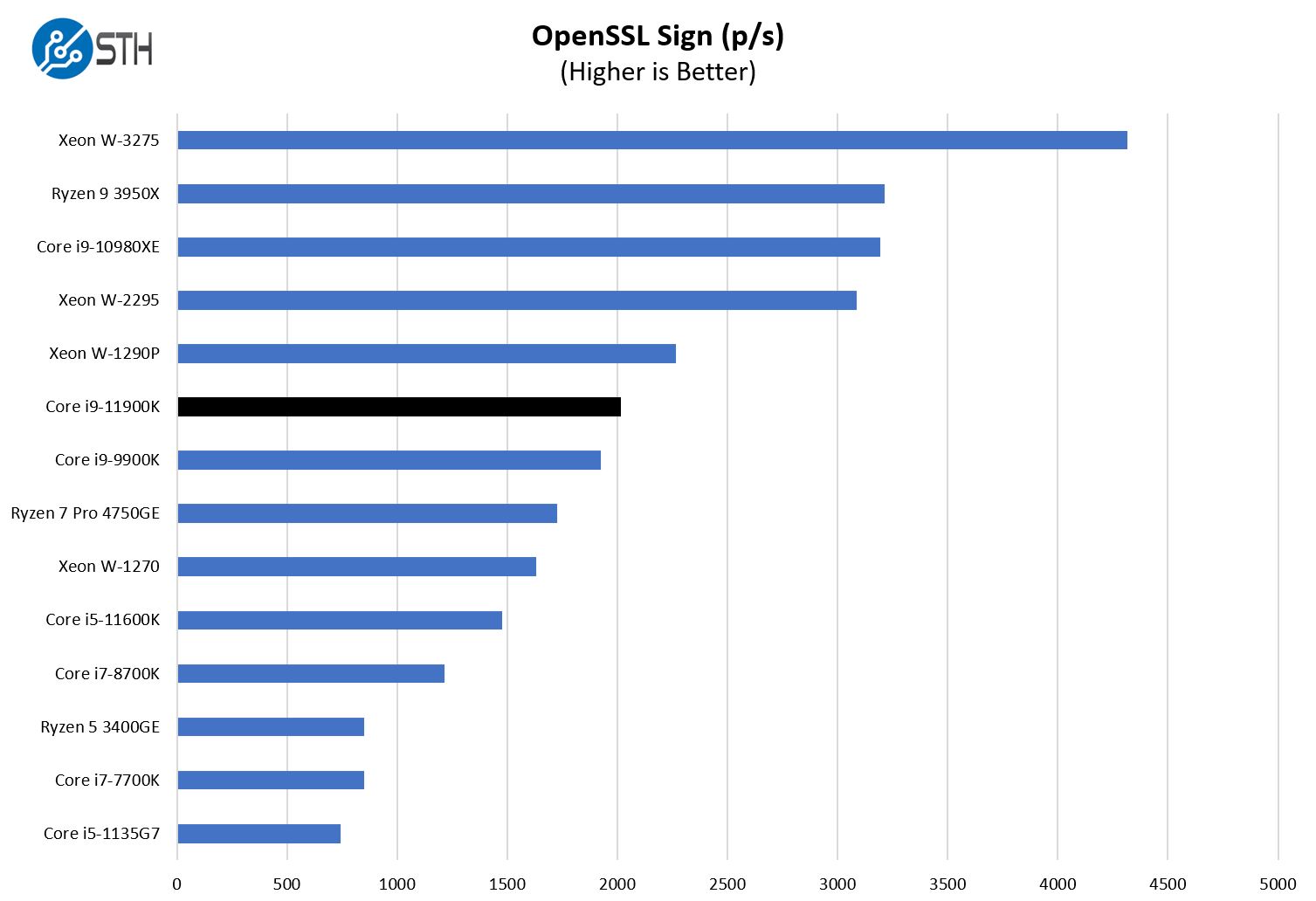
Here are the verify results:
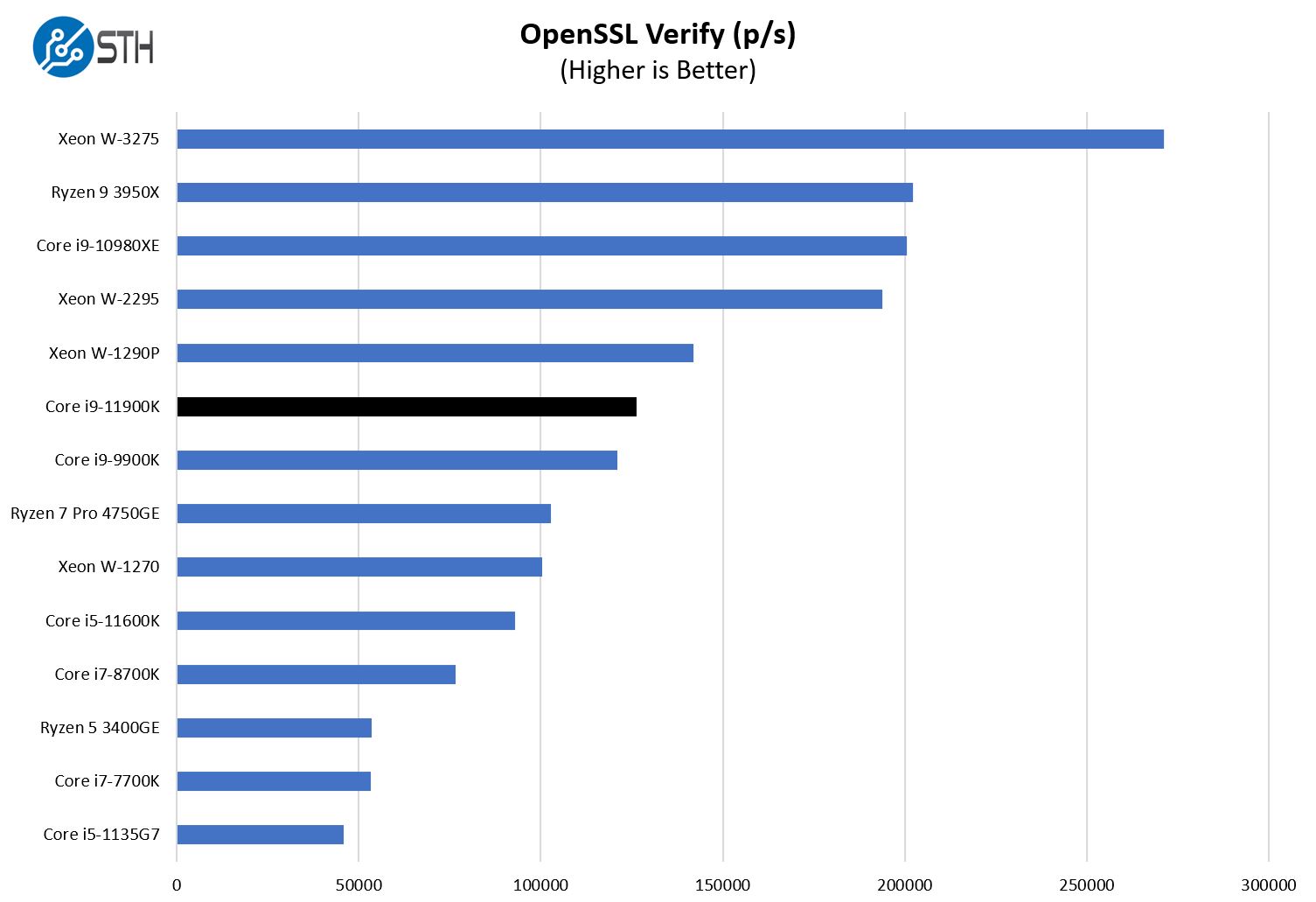
While the new generation is fast, it is not quite what we would expect from a 10-core Intel part. At some point, having more cores helps.
UnixBench Dhrystone 2 and Whetstone Benchmarks
Some of the longest-running tests at STH are the venerable UnixBench 5.1.3 Dhrystone 2 and Whetstone results. They are certainly aging, however, we constantly get requests for them, and many angry notes when we leave them out. UnixBench is widely used so we are including it in this data set. Here are the Dhrystone 2 results:
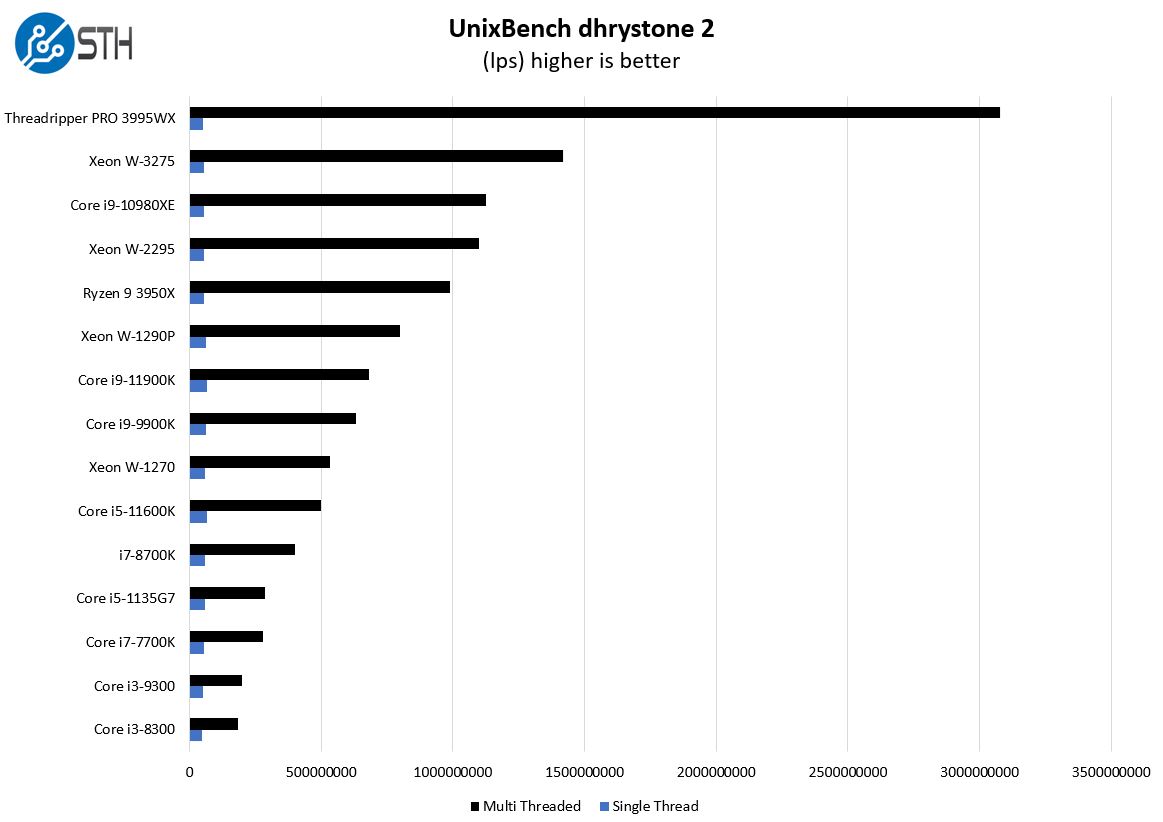
Here are the whetstone results:
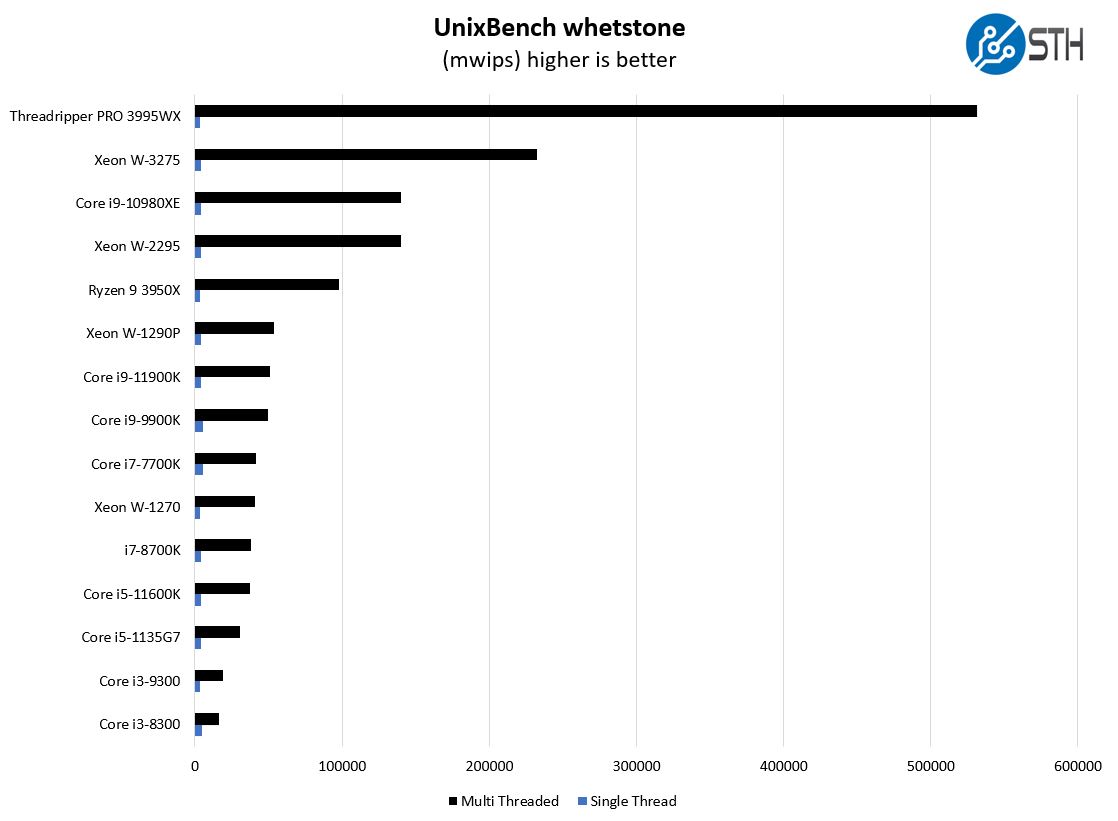
We have been including the Xeon W-3275 in many of these charts as the top-end Intel solution at the moment. The Threadripper Pro 3995X has 64 cores and a 280W TDP, so as expected it warps these charts significantly.
GROMACS STH Small AVX2/ AVX-512 Enabled
We have a small GROMACS molecule simulation we previewed in the first AMD EPYC 7601 Linux benchmarks piece. In Linux-Bench2 we are using a “small” test for single and dual-socket capable machines. Our medium test is more appropriate for higher-end dual and quad-socket machines. Our GROMACS test will use the AVX-512 and AVX2 extensions if available.
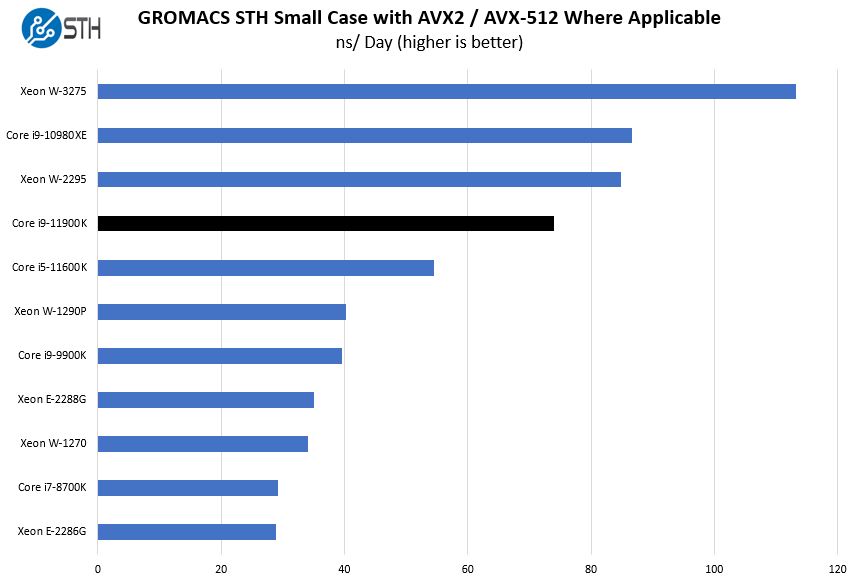
This is an older workload, but it clearly shows the impact of AVX-512. Not only is the Core i9-11900K performing well, but so is the Core i5-11600K. On higher-end Xeon CPUs, we often saw this to be TDP limited. With lower core counts we still get some of that variance, but not as much as we saw previously.
Chess Benchmarking
Chess is an interesting use case since it has almost unlimited complexity. Over the years, we have received a number of requests to bring back chess benchmarking. We have been profiling systems and are ready to start sharing results:
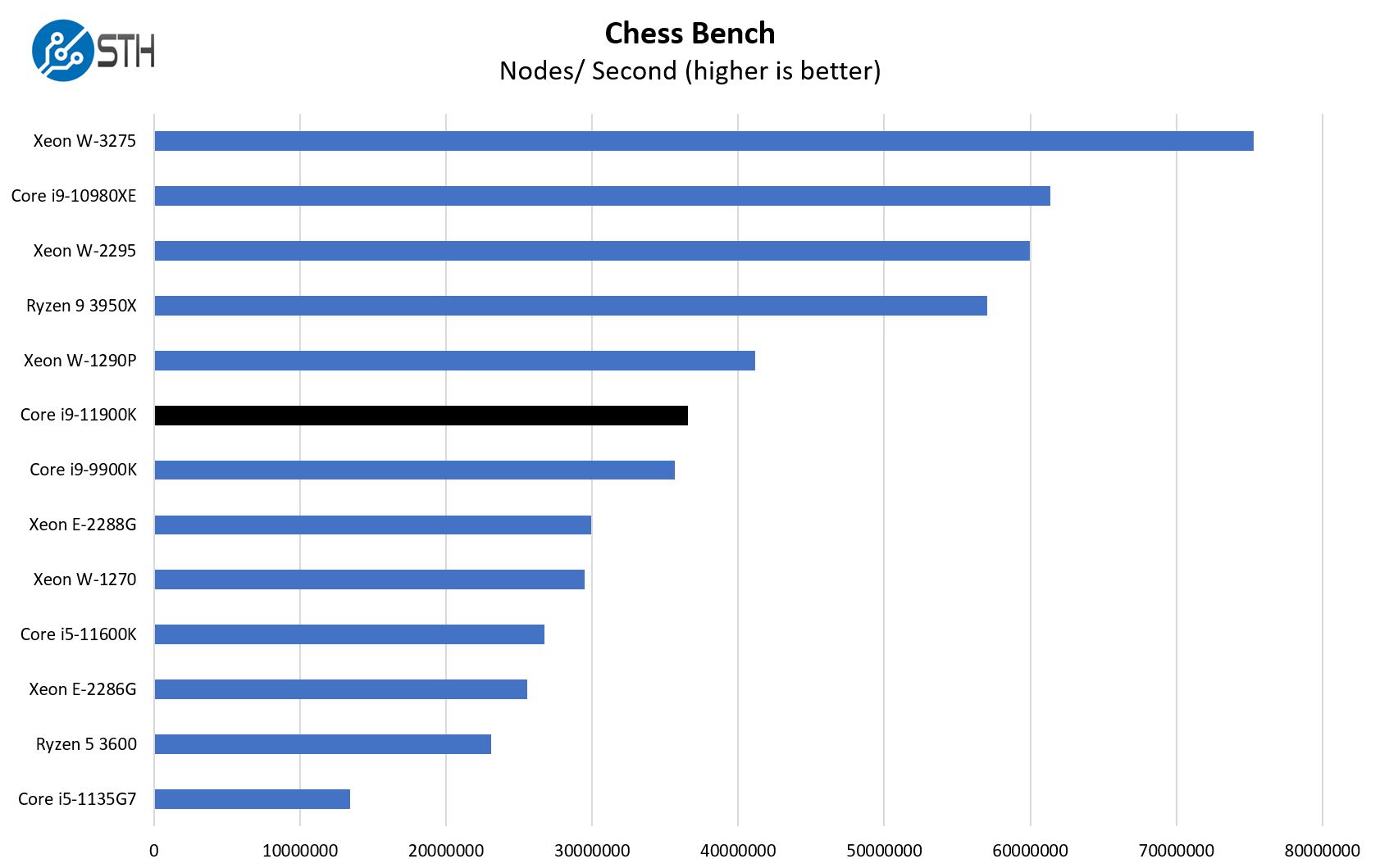
Chess benchmarking shows that we are in a similar situation to the other benchmarks we have shown so there is not a whole lot more than we can add at this point. Our virtualization benchmarks require more memory than this segment can handle. That tells us it is is time to move on.

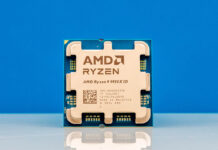

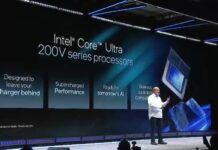
I’m shocked. Amazing CSGO tests
Had to doublecheck if this was an aprils fools joke. That 7-zip comparison makes zero sense.
The CSGO test would have passed as a joke if it weren’t for the botched benchmarks earlier. Also Ian Cutress said based on cache size, rocket lake is not Tiger Lake but Ice Lake backported
I watched a few youtube reviews about these chips and pretty much all the reviewers botched them this time. What the hell, man.
“Still, one does not get to “Global Elite” without having zero skill and reaction time” – may want to double-check the word order in that :) Normalised K:D is a benchmark every piece of hardware needs!
Got a chuckle out of winning 30 packs of “water” and “water” money. Nice review.
Need more PCIe lanes. Must have more PCIe lanes. Even just four or eight more PCIe lanes.
Ahem, more CPU PCIe lanes, not cough cough platform PCIe lanes.
I had to laugh at the “discrete” WiFi 6E support.
These chipsets don’t have ANY Wifi 6E technology integrated. This “discrete” technology means that the manufacturer must buy those standard chips/cards to support these.
In fact Intel didn’t even release a CNVi version of the AX210 yet (really hope Intel gave up on CNVi), unlike the AX201 for WIFI 6 (non-E). There is just the PCIe/USB version that is supported by ALL systems. I know that because last week I bought a AX210 for my i3-8100 system and it works fine (I couldn’t test 6Ghz because I don’t have a 6E router yet).
Ok same story with 2.5Gbps Ethernet. That is NOT integrated in the chipset. That “platform” talk is ridiculous. You need to step up your critical reading skills when it comes to Intel marketing.
You can see on the slide that it only has 1 Gbps MAC integrated and it needs an external MAC/PHY aka complete controller for 2.5 Gig.
That’s why your board has the standard Intel I225-V that can also be found on more expensive Z490 boards of the last generation or even on AMD AM4 boards.
Same with “discrete” Thunderbolt. They still need an external TB chip (or board if theres a header on MB). The same chips have been used on older Intel generation boards (and even on some AMD boards).
Of those “additions to the platform” you mentioned only 20 gbps is really integrated.
Huh, playing for water? I’d rather play for beer